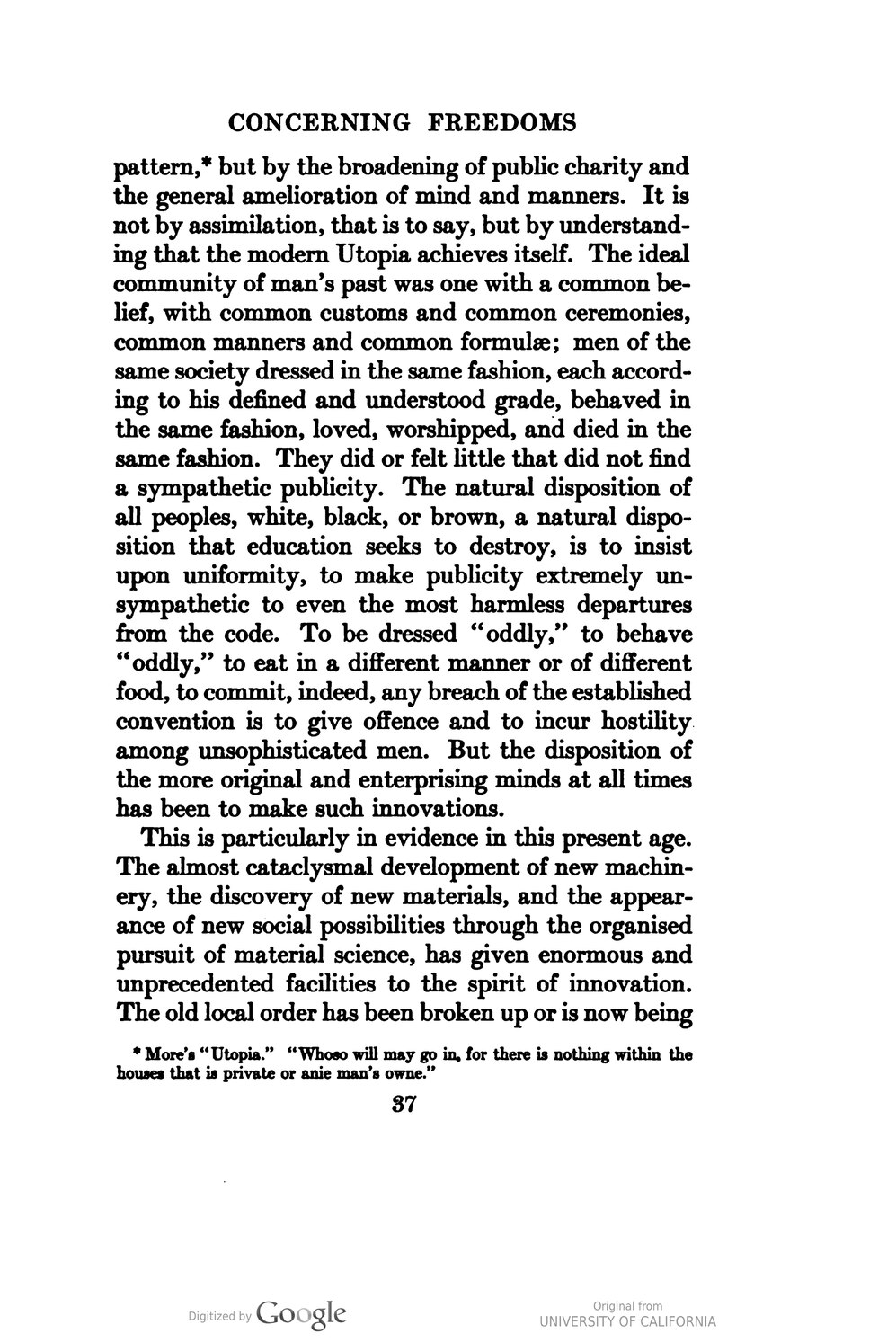CONCERNING FREEDOMS
pattern,[1] but by the broadening of public charity and the general amelioration of mind and manners. It is not by assimilation, that is to say, but by understanding that the modern Utopia achieves itself. The ideal community of man's past was one with a common belief, with common customs and common ceremonies, common manners and common formulæ; men of the same society dressed in the same fashion, each according to his defined and understood grade, behaved in the same fashion, loved, worshipped, and died in the same fashion. They did or felt little that did not find a sympathetic publicity. The natural disposition of all peoples, white, black, or brown, a natural disposition that education seeks to destroy, is to insist upon uniformity, to make publicity extremely unsympathetic to even the most harmless departures from the code. To be dressed "oddly," to behave "oddly," to eat in a different manner or of different food, to commit, indeed, any breach of the established convention is to give offence and to incur hostility among unsophisticated men. But the disposition of the more original and enterprising minds at all times has been to make such innovations.
This is particularly in evidence in this present age. The almost cataclysmal development of new machinery, the discovery of new materials, and the appearance of new social possibilities through the organised pursuit of material science, has given enormous and unprecedented facilities to the spirit of innovation. The old local order has been broken up or is now being
- ↑ More's "Utopia." "Whoso will may go in, for there is nothing within the houses that is private or anie man's owne."
37
